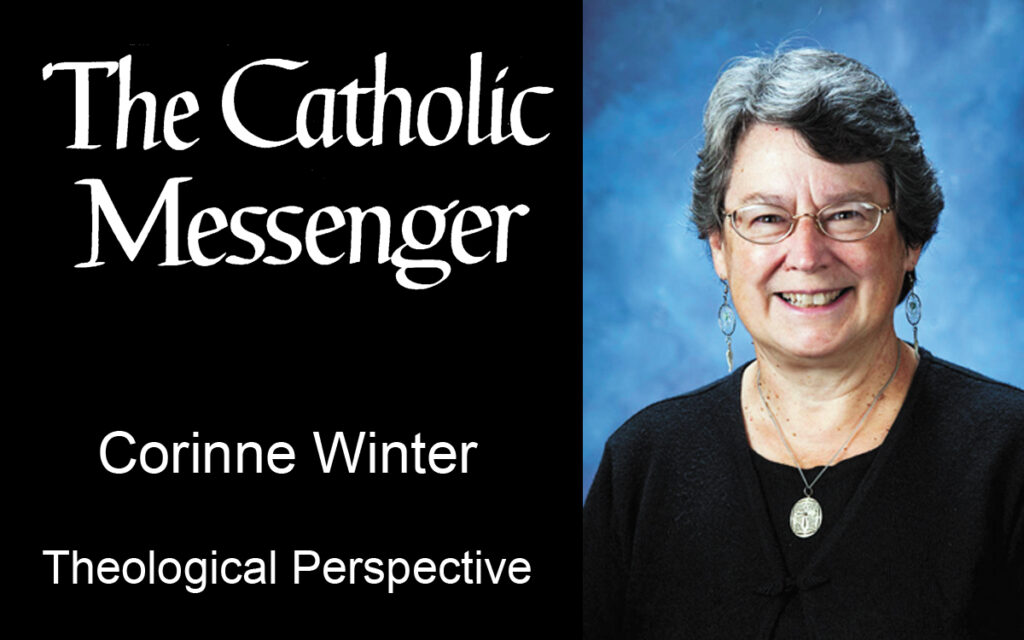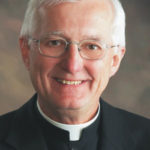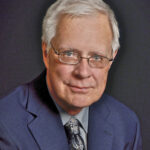“…and [I believe] in Jesus Christ, His only Son, our Lord.” This article of the Apostles’ Creed attributes three titles to Jesus: Christ, Son of God, and Lord.
The title Christ is so closely associated with Jesus that we almost think of it as his last name. However, in several Gospel accounts, the recognition of Jesus as “the Christ” or Messiah is viewed as a special insight or gift of the Spirit (see Mark 8:28 – 29). The title marks Jesus as anointed by God for a special mission. In Jesus’ case, it is the unique mission; Jesus is sent as our Savior.
 Within the Jewish tradition, three types of ministry were often recognized by anointing: the roles of priest, prophet and king. In the church, we still use those roles as ways of reflecting on the work of Christ. Moreover, because of Christ and in Christ, the anointing we receive in baptism and confirmation and the anointing of those ordained unites us with Christ’s threefold mission. We too are called to serve through worship, evangelization and leadership to help transform the world into a place where God reigns.
Within the Jewish tradition, three types of ministry were often recognized by anointing: the roles of priest, prophet and king. In the church, we still use those roles as ways of reflecting on the work of Christ. Moreover, because of Christ and in Christ, the anointing we receive in baptism and confirmation and the anointing of those ordained unites us with Christ’s threefold mission. We too are called to serve through worship, evangelization and leadership to help transform the world into a place where God reigns.
The title Lord is also applied to Jesus in some of the earliest New Testament writings, the Epistles. We are perhaps most familiar with Philippians 2:11: “Let every tongue proclaim that Jesus Christ is Lord.” The title “lord” can be used to indicate a position of human authority. However, in the verse quoted above and elsewhere in Scripture it is a divine title. “Jesus is Lord,” is apparently one of the earliest formulas for confessing Christian faith. It is still a powerful one. If we truly claim Jesus as Lord, we put God before every other value or goal. As we pray the creed, we should resolve to do that ever more fully.
The second article of the Nicene Creed is significantly longer than the Apostles’ Creed because it elaborates on the title, Son of God. Like the title “lord,” the title Son of God was sometimes applied to kings or prophets who were not divine. “Only Son,” however, refers to the unique relationship of Christ to the Father. The Nicene Creed with the additions “God from God, Light from Light … consubstantial with the Father,” reflects the work of 4th century councils at Nicaea and Constantinople. At that time, debates raged among Christians over the divinity of Christ. Some believed that if Christians were to remain monotheists, believers in one God, the Son and the Spirit must somehow be less divine.
While “God from God, Light from Light, true God from true God,” has a poetic ring, the term “consubstantial with the Father” sounds odd to us. It is a translation of the Greek word homoousios and, like many translations, does not do justice to the word it translates. Neither the Greek word nor the translation is familiar to us from any other context. There are those who point to it as evidence that the doctrine of the Trinity arose when philosophy invaded theology. While the term is borrowed from philosophy for the sake of precision in ruling out heretical teachings, theologian Karl Rahner reminds us that the process leading to its assertion was not abstract speculation but reflection on the experience of salvation offered by God in Christ. Like all human words, it falters before the mystery of God, but it represents Christian convictions about God’s self-revelation. God is One. Jesus Christ, sent by the Father, is our Savior. Only God can save. Jesus Christ is worshipped. Worship belongs to God alone. If Jesus and the Father are not One God, then some of those underlying convictions must be denied. When we confess that Jesus Christ is “consubstantial with the Father,” we do not explain how that is true; rather we affirm God has revealed that it is true.
Further, when we express our belief that Christ and the Father are one, we set ourselves to view the work of Jesus Christ not merely as the work of a great human person called by God but as the very work of God among us. With that mindset, we are prepared to pray the list of events that comes next in the creed: the Incarnation, life, death and resurrection of Jesus Christ.
(Corinne Winter is a professor-emerita of St. Ambrose University, Davenport.)











